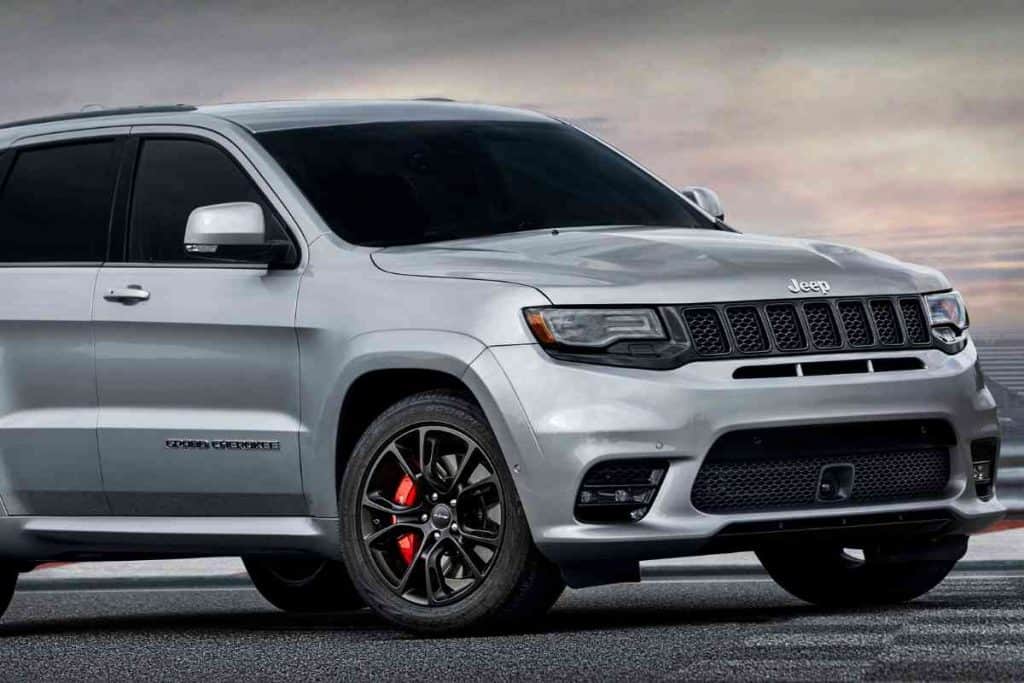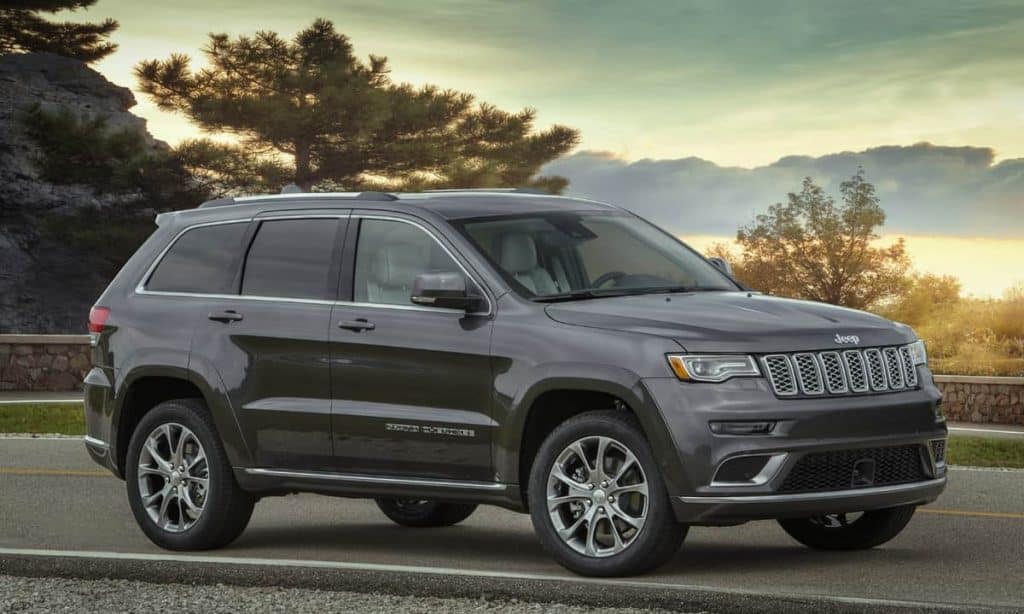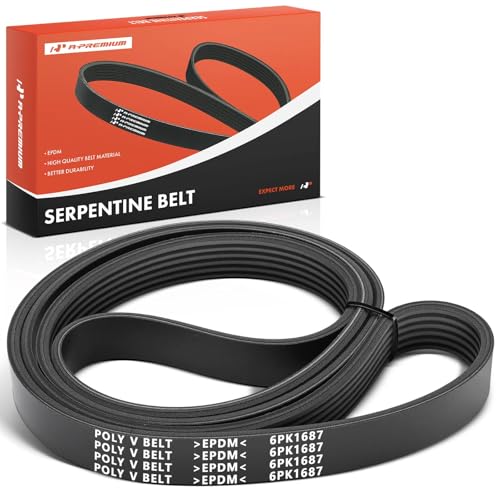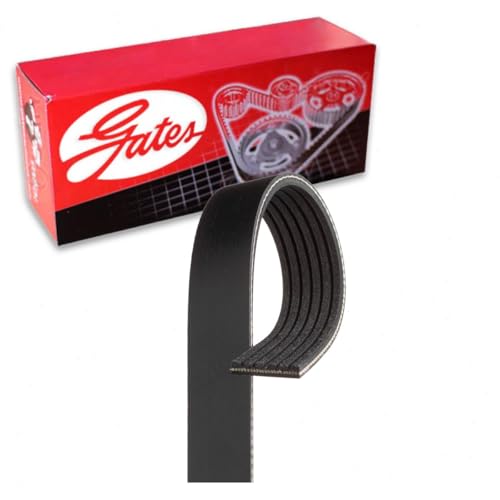Do Jeep Grand Cherokees Have Timing Belts?
A lot of Jeep people are such devoted enthusiasts that they even take care of maintenance and repairs for themselves. One of the best things about Jeeps is that they are easy enough to work on that even inexperienced mechanics can work on them with a little bit of patience and the time to do some Google searching or YouTube viewing.
Do Jeep Grand Cherokees Have Timing Belts?
Do Jeep Cherokees have timing belts? The only Jeep engine that has a timing belt is the 2.4 Liter. Your Jeep Grand Cherokee is going to have a timing chain instead. In general, a timing chain is much more durable than a belt, and it typically lasts the life of your engine where belts require replacement every 40,000 to 100,000 miles.
The next time one of your buddies is trying to impress you with their mechanical abilities by telling you about the time they changed the timing belt on their Jeep Grand Cherokee, you’ll know enough to decide whether to call them on it or just nod and smile.
At the same time, if your repair shop tries to charge you for replacing the timing belt in your Grand Cherokee, you’ll know it’s time to find a new mechanic.
Are Timing Chains Better Than Timing Belts?
If you’re a devoted Jeep Grand Cherokee fan, then it doesn’t really matter whether timing chains are better or worse than timing belts—if you want to drive a Grand Cherokee, the timing chain is your only option.
But for the sake of argument, we’ll take some time in this article to compare and contrast the pros and cons of each. We’ll also give you some tips to spot a timing chain that needs replacement.
It’s one of the features that makes Jeep Grand Cherokees unique amongst high-performance SUVs.
Like many of the other areas of the vehicle where a choice between standard-duty and heavy-duty parts, the timing chain gives the Grand Cherokee an advantage in challenging conditions and gives you one less part to worry about when you’re out and about in your Jeep.

That’s not to say that timing chains never fail or break. They do—and when they do, they tend to cause problems that require more repair work than you would be facing from a broken timing belt.
Fortunately, unlike some other vehicle makes that use timing chains in new vehicles, Jeep has had very few problems with the timing chains they use.
Timing chains are more expensive to replace than timing belts, even when you catch the need for repair before your chain breaks. Another downside of a timing chain is that they are noisier than timing belts.
When you replace a timing belt, you typically have to replace the water pump at the same time. Low oil pressure in your engine can cause problems with your timing chain.
Does It Make a Difference?
A lot of Jeep Grand Cherokee owners will never know the difference between the engine in their vehicle and most others that are on the roads these days.
Unless you do the work on your vehicle yourself or pay very close attention to the work being done by your shop, it might never come up. Even if you do handle most of the work on you Jeep Grand Cherokee yourself, you probably won’t ever need to replace the timing chain.
In most cases, your timing chain will last the lifetime of your vehicle’s engine. Not having to think about your timing chain is one of the benefits of having an engine that uses one instead of a timing belt.
The fact that timing chains tend to be noisier isn’t a very big deal either. Once you’re used to the sound of your Grand Cherokee’s engine, you won’t even notice the little bit of additional noise.
Timing belts were introduced by car manufacturers in the 1960s to provide a quieter and cheaper alternative to timing chains. When you consider that they can last up to 100,000 miles, there isn’t a big difference between a belt and chain when it comes to maintenance requirements.
However, the need to replace a water pump at the same time does add to the costs. Still, if you’re doing the work yourself, the real difference over the life of your vehicle is negligible.
![Do Jeep Grand Cherokees Have Timing Belts? 2 What Boats Can a Jeep Grand Cherokee Tow? [18 Examples]](https://fourwheeltrends.com/wp-content/uploads/2020/01/6-5.jpg)
The biggest difference between a belt and a chain is the timing chain’s potential to cause a lot of problems when it breaks. In order to avoid these problems, it’s important to know the warning signs that you’ll be able to recognize before the chain breaks.
This can make a difference between a routine replacement and a serious mechanical repair.
Signs Your Timing Chain Needs to Be Replaced
Every internal combustion engine has either a timing chain, a timing belt, or timing gears. So, no matter what engine you choose, you’re going to have to deal with the potential for problems.
With timing chains, there is a need for constant lubrication to allow for smooth operations and reduce wear from friction. When timing chains wear, it can have a negative impact on the engine’s timing.
Look for the following symptoms of a timing chain that is going bad in the engine of your Jeep Grand Cherokee:
- Check Engine Light: When the camshaft and crankshaft are not synced, the advanced technology in modern engines will send a code to the engine’s control unit that will cause your vehicle’s check engine light to come on.
- Misfiring: Timing chains can stretch over time, and this can allow them to jump on the gears on the crankshaft or camshaft. This is a serious sign of trouble and a good indication that the chain is approaching the point where it will break.
- Rough Idling: This is another serious warning sign—one that should not be ignored. If you notice a change in the sound of your engine’s idle to an annoying rattle, it’s time to replace your timing chain.
- Metal Shavings in Engine Oil: You should service your engine every 5,000 miles. If you’re performing routine service and notice metal shavings in the old engine oil, that is a good sign that your timing chain needs to be replaced. You should also check other potential sources such as keeper retainers and cylinder head valves.
When you know that your engine is running a timing chain, it is imperative that you stay alert for these symptoms.

While a broken timing belt can be an inconvenience, it doesn’t require much more work to fix than it takes to replace a belt before it breaks. It’s different with timing chains.
When a timing chain breaks, it can cause a lot of extra problems that will make repairs more costly and difficult.
Conclusion
There are plenty of advantages that come with an engine that runs a timing chain. That’s all the more reason to love your Jeep Grand Cherokee.
At the same time, not knowing the difference that this feature of your vehicle’s difference makes can allow you to ignore warning signs when something goes wrong, and that can lead to a minor problem becoming a major issue.
The information in this article will help you to make sure you’re not setting yourself up for trouble somewhere down the road.
Just like a lot of other features in the Jeep Grand Cherokee, a timing chain adds an extra measure of durability, longevity, and heavy-duty performance.
Knowing how to take advantage of these benefits and avoid the potential pitfalls is an important part of getting the maximum amount of enjoyment out of your Jeep Grand Cherokee.
Jeep Grand Cherokee Parts
Last update on 2026-02-12 / If you click this affiliate link and make a purchase, we earn a commission at no additional cost to you.



